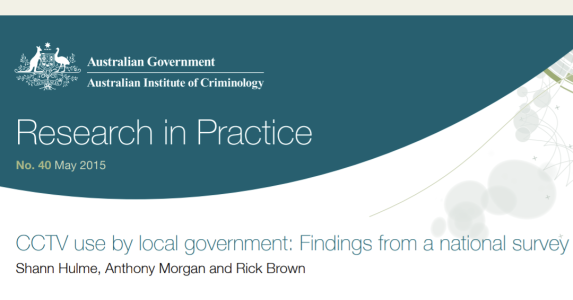CHOICE report reveals privacy violations among major automotive brands
By
- Replies 11
In an age of unprecedented technological advancement, the line between convenience and privacy is becoming increasingly blurred.
For many over 60, the idea of a car that can do more than get us from A to B is still a marvel.
However, a recent investigation has revealed a concerning trend among Australia's top car companies, which could seriously affect our privacy.
The investigation, conducted by consumer advocacy group CHOICE, has found that several leading automotive brands are engaging in highly intrusive data collection practices.
The report has sent shockwaves through the industry, with car makers accused of tracking owners' locations, listening in on conversations, and sharing personal information with third parties.
The findings are particularly alarming for drivers who value their privacy.
Rafi Alam, senior campaigns and policy adviser at CHOICE, pointed out that Kia, Hyundai, and Tesla were the worst offenders regarding customer privacy protection.
These companies were found to collect and share voice recognition data, among other information, with third-party entities.
This revelation comes as governments in the US and Australia scrutinise the security and privacy risks associated with cars manufactured in China.
While the focus has been on Chinese brands like MG and BYD, mainstream brands such as Toyota have also been taking liberties with consumer data.
The Mozilla Foundation's investigation into 25 automotive brands has labelled cars as 'the worst category of products for privacy' they've ever reviewed, describing the situation as a 'privacy nightmare.'
This is a warning for those concerned about how our data is collected and used.
The root of these privacy concerns lies in the connected services that are increasingly being integrated into new vehicles.
For example, Hyundai's 'Bluelink' smartphone app and onboard connection, launched in 2022, offered features such as automatic ambulance calls after a crash, remote vehicle management, and tracking capabilities.
Kia's Connect feature in models like the latest Carnival People Mover allows owners to monitor the driving behaviour of those who borrow their car.
While these features are marketed as safety and convenience enhancements, they also raise questions about the extent of data being collected and the potential for misuse.
Kia and Hyundai have stated that their services are opt-in and that customers can deactivate them anytime.
However, opting out means missing out on certain safety features, which puts consumers in a difficult position.
The debate over privacy concerns the data and the adequacy of current laws to protect consumers.
Associate professor Katharine Kemp from the University of New South Wales has criticised the outdated Privacy Act, suggesting that it fails to ensure fair data practices in the context of connected cars.
She calls for an updated definition of 'personal information' and consent standards that align with those in jurisdictions like the EU.
CHOICE's Rafi Alam echoes this sentiment, calling for the federal government to implement a fair and reasonable use test.
Such a test would legally require businesses to collect and use data in line with consumer expectations.
It's essential to stay informed about our vehicles' capabilities and the terms of service we agree to.
If you want a new car, carefully read the privacy statements and user agreements.
Ask questions about data collection and sharing practices, and consider whether the benefits of connected services outweigh the privacy concessions you're being asked to make.
 Have you had any experiences with connected car services that have raised privacy concerns for you? Share your stories in the comments below.
Have you had any experiences with connected car services that have raised privacy concerns for you? Share your stories in the comments below.
For many over 60, the idea of a car that can do more than get us from A to B is still a marvel.
However, a recent investigation has revealed a concerning trend among Australia's top car companies, which could seriously affect our privacy.
The investigation, conducted by consumer advocacy group CHOICE, has found that several leading automotive brands are engaging in highly intrusive data collection practices.
The report has sent shockwaves through the industry, with car makers accused of tracking owners' locations, listening in on conversations, and sharing personal information with third parties.
The findings are particularly alarming for drivers who value their privacy.
Rafi Alam, senior campaigns and policy adviser at CHOICE, pointed out that Kia, Hyundai, and Tesla were the worst offenders regarding customer privacy protection.
These companies were found to collect and share voice recognition data, among other information, with third-party entities.
This revelation comes as governments in the US and Australia scrutinise the security and privacy risks associated with cars manufactured in China.
While the focus has been on Chinese brands like MG and BYD, mainstream brands such as Toyota have also been taking liberties with consumer data.
The Mozilla Foundation's investigation into 25 automotive brands has labelled cars as 'the worst category of products for privacy' they've ever reviewed, describing the situation as a 'privacy nightmare.'
This is a warning for those concerned about how our data is collected and used.
The root of these privacy concerns lies in the connected services that are increasingly being integrated into new vehicles.
For example, Hyundai's 'Bluelink' smartphone app and onboard connection, launched in 2022, offered features such as automatic ambulance calls after a crash, remote vehicle management, and tracking capabilities.
Kia's Connect feature in models like the latest Carnival People Mover allows owners to monitor the driving behaviour of those who borrow their car.
While these features are marketed as safety and convenience enhancements, they also raise questions about the extent of data being collected and the potential for misuse.
Kia and Hyundai have stated that their services are opt-in and that customers can deactivate them anytime.
However, opting out means missing out on certain safety features, which puts consumers in a difficult position.
The debate over privacy concerns the data and the adequacy of current laws to protect consumers.
Associate professor Katharine Kemp from the University of New South Wales has criticised the outdated Privacy Act, suggesting that it fails to ensure fair data practices in the context of connected cars.
She calls for an updated definition of 'personal information' and consent standards that align with those in jurisdictions like the EU.
CHOICE's Rafi Alam echoes this sentiment, calling for the federal government to implement a fair and reasonable use test.
Such a test would legally require businesses to collect and use data in line with consumer expectations.
It's essential to stay informed about our vehicles' capabilities and the terms of service we agree to.
If you want a new car, carefully read the privacy statements and user agreements.
Ask questions about data collection and sharing practices, and consider whether the benefits of connected services outweigh the privacy concessions you're being asked to make.
Key Takeaways
- Top car companies in Australia have been criticised for invasive data collection practices, such as tracking locations and sharing voice recognition data with third parties.
- Kia, Hyundai, and Tesla were identified as the worst offenders in a report concerning customer privacy protections.
- Car makers defend the data collection, stating that services like automatic ambulance calls post-accidents and other connected car features are necessary.
- Privacy experts call for updates to Australia's Privacy Act, deeming it outdated and inadequate to manage fair data practices in the era of connected vehicles.









